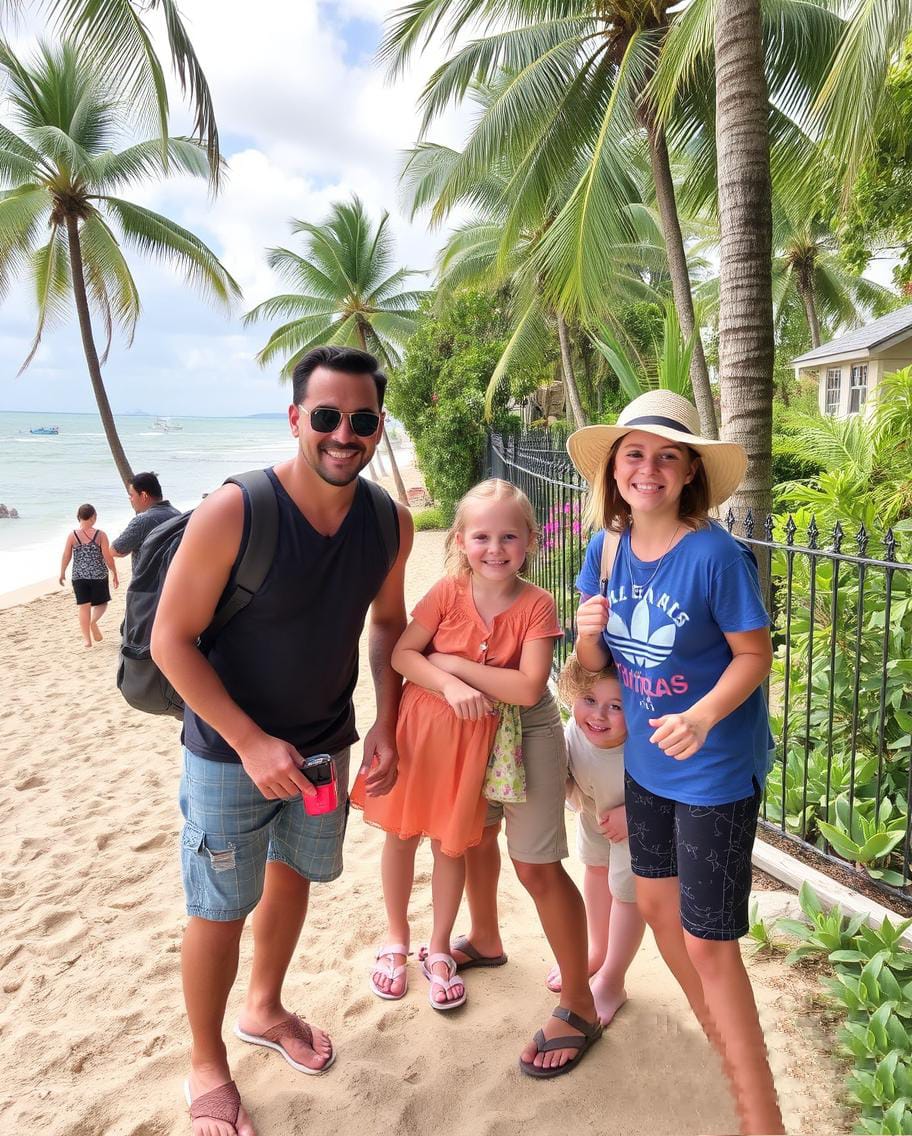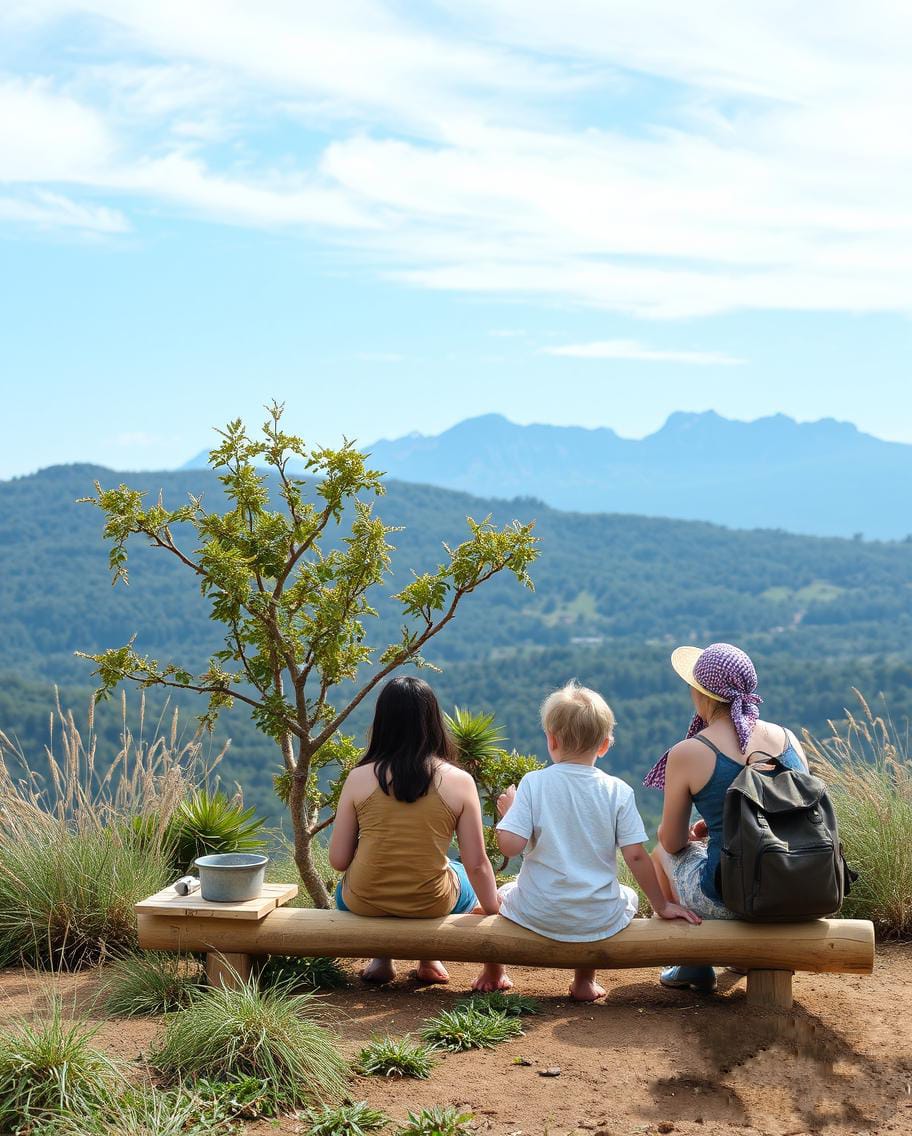Traveling with family, especially with young children or elderly relatives, requires extra care to ensure everyone’s safety and well-being. Here are some essential safety travel tips for families:
1. Research Your Destination
– Know the Area: Research your destination thoroughly before you go. Understand the local customs, laws, and any potential safety concerns. Look up reviews and ask for recommendations for family-friendly accommodations and activities.
– Health and Safety: Check if there are any health advisories or necessary vaccinations for the area you’re visiting. Make a note of nearby hospitals, clinics, and pharmacies.
2. Stay Connected
– Communication Plan: Ensure everyone in your family has a means of communication, such as a mobile phone or a portable Wi-Fi device. Create a plan for what to do if someone gets separated, including a designated meeting spot.
– Local Emergency Numbers: Familiarize yourself with local emergency numbers, such as the police, ambulance, and fire services. Store these numbers in your phone.
3. Keep Important Documents Safe
– Passports and IDs: Keep passports, IDs, and other important documents in a secure, waterproof pouch. Make copies and store them separately, and consider keeping digital copies in cloud storage.
– Travel Insurance: Ensure you have comprehensive travel insurance that covers medical emergencies, trip cancellations, and lost luggage. Keep the policy details easily accessible.
4. Pack Smart
– First Aid Kit: Carry a basic first aid kit with essentials like band-aids, antiseptic wipes, pain relievers, and any necessary prescription medications. Include insect repellent and sunscreen if needed.
– Snacks and Water: Always have snacks and water on hand, especially when traveling with children. This can help prevent hunger-induced irritability and dehydration during long trips.
5. Child Safety
– Childproofing: If you’re staying in a hotel or rental property, inspect the room for potential hazards like sharp edges, exposed outlets, or unlocked windows. Bring along childproofing items like outlet covers and door stoppers if necessary.
– Identification: Consider having young children wear a wristband with their name, your contact information, and any important medical details. Teach them to approach a trusted adult, such as a police officer or hotel staff, if they get lost.
6. Be Cautious with Food and Water
– Safe Eating Practices: Be mindful of what your family eats, especially in countries where food safety standards differ. Stick to bottled water, avoid raw or undercooked foods, and eat at reputable restaurants.
– Snacks from Home: If anyone in your family has food allergies, pack snacks from home to ensure they have safe food options.
7. Transportation Safety
– Car Seats and Boosters: If you’re renting a car, ensure it comes with proper car seats or boosters for young children. If possible, bring your own car seat from home to ensure it’s up to safety standards.
– Public Transportation: When using public transport, stay close to your children and keep a firm grip on their hands. Avoid crowded areas where it’s easy to get separated.
8. Secure Accommodations
– Safe Location: Choose accommodations in safe neighborhoods with good security measures, such as 24-hour front desks and secure entrances.
– Room Security: Once in your room, use all available locks and consider using a doorstop for added security. Never leave valuables in plain sight.
9. Plan for Emergencies
– Emergency Contacts: Make sure every family member knows how to contact local emergency services and has access to your country’s embassy or consulate information.
– Backup Plans: Have a backup plan in case of unexpected events, such as a sudden illness or missed connection. Know where the nearest hospitals and pharmacies are located.
10. Teach Kids About Safety
– Stranger Danger: Teach children about the importance of not talking to strangers or wandering off. Practice what they should do if they get lost, such as finding a police officer or staying in one place.
– Personal Boundaries: Reinforce the importance of personal boundaries and ensure children know they should tell you if they feel uncomfortable around anyone.
11. Stay Vigilant
– Watch Your Belongings: Keep an eye on your belongings, especially in crowded places. Use anti-theft bags and keep your valuables close to your body.
– Trust Your Instincts: If something feels off or unsafe, trust your instincts and remove your family from the situation. It’s better to be safe than sorry.
12. Consider Health Precautions
– Vaccinations and Medications: Ensure everyone is up-to-date on necessary vaccinations before traveling. Carry a sufficient supply of any prescription medications and be aware of local health risks.
– COVID-19 Precautions: Stay informed about COVID-19 protocols at your destination, including mask mandates, vaccination requirements, and testing procedures.
By following these safety tips, you can help ensure a safe and enjoyable family vacation, giving you peace of mind as you explore the world together.




